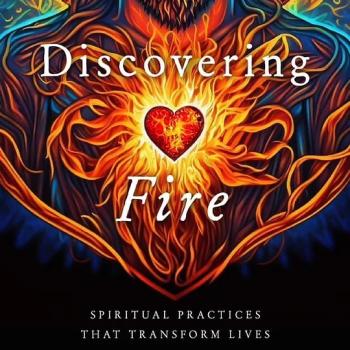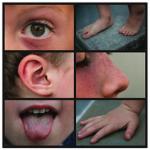(image: http://static.guim.co.uk/sys-images/Guardian/Pix/pictures/2009/01/08/j460.jpg)
Have you seen Jesus through Jewish eyes?
I must say that I haven’t – at least not as fully as I have after reading a new book called The Jew Named Jesus. I know a lot about Christianity. A budding voice in progressive Christianity, some consider me an expert. But my knowledge of my faith is colored by my color. I’m a white male Protestant Christian and though I consider myself relatively well read and familiar with most theologies including feminist, womanist, liberationist, etc., I now see that what I’ve chosen to read and know about –and even what I knew was available to read and know about– has been a product of my social location. In sum, I’ve lived in more of a male-centric WASP ghetto than I knew. Rebekah Simon-Peter essentially suggests that most contemporary Christians live in this ghetto — to the detriment of all of us.
Though not a book with many pages, The Jew Named Jesus packs a wallop. But it doesn’t punch us in a way that is off-putting or unwelcome. Simon-Peter has a genuinely winsome way with words. She shares her personal journey of being a “spiritual hybrid” with one foot in Judaism (raised by a Jewish mother) and one foot in Christianity (raised by a Catholic father), exploring her Jewish faith, having a profound mystical experience with Jesus, and becoming an ordained United Methodist pastor whilst being an accepted and fully welcomed minority among minorities in an African American congregation. She’s now shifted to focus her ministry on helping gentile Christians become more Christian by knowing about, appreciating, and integrating the Jewishness of Jesus.
Liberal and even progressive Christians tend to think that we aren’t anti-semitic, but Rev. Simon-Peter points out our blind spots in a way that doesn’t cause us to wince – too much. I was frequently surprised to realize how many things I didn’t know. A few examples: During the Middle Ages, European Church councils ordered Jews not to appear in public during Holy Week; Jews had to pay tithes to support the Church; Christians weren’t allowed to observe the Sabbath or participate in Jewish holidays; during the Crusades, Jews were killed even if they converted; most all of Hitlers orders regarding the Jews were based upon the earlier views and teachings of certain historical Christian leaders; there were 27 breaches of Jewish law during the Gospels’ accounts of the trial and sentencing of Jesus; that Pontius Pilate was considered to have become a convert to Christianity and is honored as a martyr in the Coptic Orthodox Church; and until recently the Catholic Church held a stance that Jews were guilty of “deicide” (the killing of God).
The author embraces a mature willingness to question the factuality of what is written in the Bible and shows the importance of knowing about the specific contexts and audiences that the biblical writers were operating within. After many years of being wary of the apostle Paul, she shows how she’s “read Paul again for the first time” and come to appreciate his Jewishness and his specific focus on writing to gentiles.
She deftly debunks our all too common tendency to think of Jesus as having been against the Judaism of his day and our ignorant, pejorative dismissal of “Pharisees” and “Sadducees.” Jesus passionately grappled with them because he was one of them.
While she does tend to operate, mostly, from a traditional point of view of the substitutionary theory of the atonement as being normative, Simon-Peter’s focus on how Jews, and Jesus, emphasize a sense of salvation being about the here and now shares much in common with the progressive Christianity that I advocate. Even more so her stress upon following Jesus’ Way and teachings rather than having people all “believe the right things about Jesus.” Indeed, as I wrote in my book Kissing Fish, it’s important for people to focus on the “religion of Jesus” more than on the “religion about Jesus.”
She points out how Jesus was very much a product of his Jewish lineage and how his teachings were clearly informed by, and extensions of, thousands of years of Jewish thought and practice. Without calling for gentile Christians to convert to Judaism, she calls for us to notice our blind spots and to remove our blinders. (Though she didn’t mention him much, read up on Rabbi Hillel).
Rebekah poetically closes by pointing out many rays of light and hope in recent developments and reconciliations between Jewish and Christian leaders and that we’re now finally at a point where both Jews and Christians can see that “our destinies are deeply intertwined and our treasures lay buried in overlapping fields.”
Having read this one book by my colleague Rebekah Simon-Peter does not mean that I’m now an expert on Jesus as understood from a Jewish, let alone from a Jewish female, perspective. It won’t make you an expert either. But, it will likely expand your horizons, it will likely whet your whistle to read and learn more, and it will likely help you “get Jesus” in a way that will be essential to your maturing Christian faith.
Makes an ideal stocking stuffer!
You can order the book here:
Shalom.
xx – Roger
Rev. Roger Wolsey is an ordained United Methodist pastor who directs the Wesley Foundation at the University of Colorado at Boulder, and is author of Kissing Fish: christianity for people who don’t like christianity

















